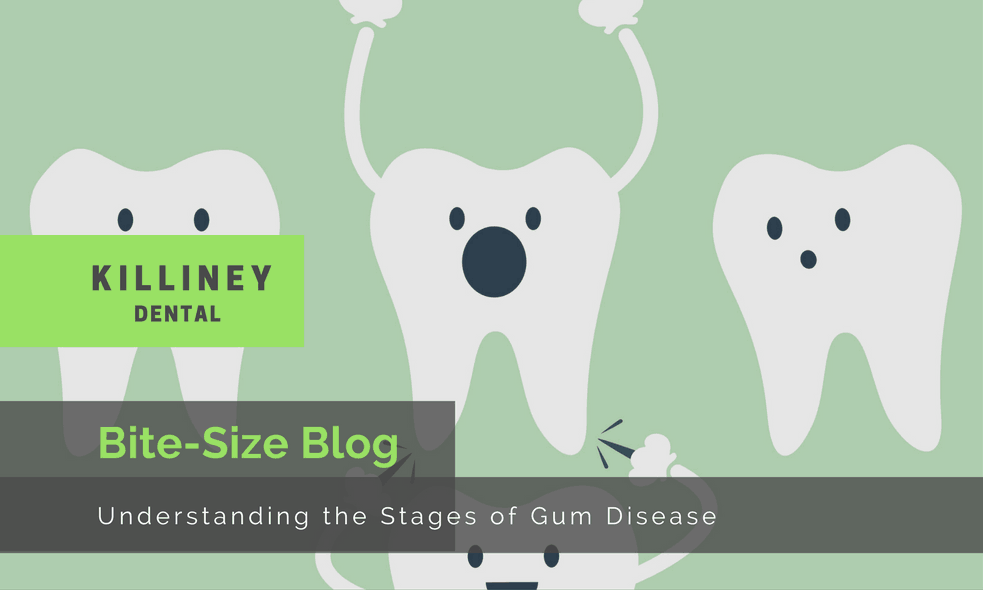Gum Disease
Gum disease is a common condition that, if left untreated, can lead to serious complications. Most adults are believed to have some degree of gum disease, but the condition can progress to more serious problems. Understanding the causes, symptoms and stages of gum disease is the key to preventing irreversible damage to your teeth and gums.
Causes and Risk Factors
Gum disease is caused by a buildup of plaque on the teeth. Plaque is produced when bacteria in the mouth mixes with saliva, forming a sticky substance that accumulates on the teeth. Plaque irritates the gums and causes redness, swelling, soreness and bleeding. It also contains acid that can harm teeth and lead to tooth decay. If plaque is not removed regularly, it can harden and turn into tartar, a yellow substance that is much more difficult to remove.
Due to certain risk factors, some people are more prone to gum disease and excess plaque production. Risk factors include smoking, stress, poor nutrition and some health conditions, including diabetes and autoimmune diseases. Medications and health problems that cause a dry mouth can also increase the risk of gum disease.
Stages of Gum Disease
Mild gum disease, known as gingivitis, can cause bad breath and swollen, red or bleeding gums, particularly after brushing or flossing your teeth. Gingivitis can often be successfully treated by following a good oral health routine, although your dentist may also suggest using a special toothpaste or mouthwash to help control bacteria in the mouth. If tartar has formed on your teeth, it will need to be removed by your dentist or a dental hygienist.
If gingivitis is left untreated, it can lead to a more serious condition, known as periodontitis. Periodontitis, or periodontal disease, affects the tissue surrounding the teeth and can lead to painful abscesses, receding gums, loose teeth and even tooth loss. Left untreated periodontitis can also damage the jawbone and create gaps between the teeth. In some rare cases, a painful condition called acute necrotizing ulcerative gingivitis (ANUG) can occur, leading to pain and damaged papillae.
Prevention
The best way to prevent gum disease is to develop a good oral health routine. Brushing your teeth at least twice a day is essential for controlling bacteria in the mouth and removing plaque before it turns into tartar. Avoid brushing your teeth after meals, as acid in foods can weaken tooth enamel, making it more prone to damage. Using a hard-bristled toothbrush, applying too much pressure when brushing or brushing more than three times a day can also damage the teeth.
Regular flossing is essential for maintaining good oral health, as it helps to remove plaque and food debris from areas your toothbrush can’t reach. Alternatively, you can use interdental brushes or water flossers to clean between your teeth.
Regular dental check-ups are also an important part of keeping your teeth and gums healthy. A simple dental examination will enable your dentist to spot any signs of gum disease and tooth decay. In addition, the dentist can remove any tartar from your teeth and offer advice on how to take care of your teeth and gums.
Author: Dr Gerald O’Connor BDS NUI (hons)
Dr Gerald O’Connor is the principal dentist and owner of Killiney Dental. Dr O’Connor graduated with an honours dental degree from University College Cork in 1998. He has since worked as a general dental surgeon in the UK and Ireland and has over 20 years experience in the dental field, with a particular interest in cosmetic and restorative dentistry. Dr O’Connor is an active member of the Irish Dental Association, sitting on its Quality Patient Safety Committee, and is a Irish Dental Council registered dentist.


